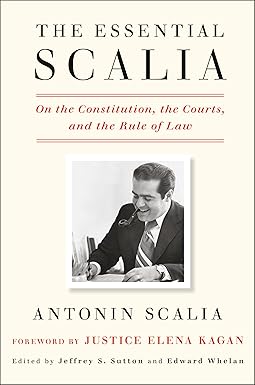Andrew Heaton suggests a new lyric query: Why do so many jobs require a license? Trust me, it's funny:
And the Headline reference is pretty obscure, but interesting! (I am ashamed to admit my first guess was Dusty Springfield.)
Also of note:
-
V is for… The WSJ editorialists are righteously disgusted by Trump’s Vendetta Campaign Targets John Bolton. (WSJ gifted link)
I assume you've heard the news today (oh boy). So we'll jump down to the bottom line:
Mr. Bolton has continued to speak candidly about Mr. Trump’s second-term decisions, pro and con, including in these pages this week [gifted link added] . The President may also hope the FBI raid will cause Mr. Bolton to shut up, though knowing him we can’t imagine that working.
The real offender here is a President who seems to think he can use the powers of his office to run vendettas. We said this was one of the risks of a second Trump term, and it’s turning out to be worse than we imagined.
Indeed it is.
-
Does he, though? Kevin D. Williamson thinks Ted Cruz Knows Better, and he lives in Texas, so I'll defer to his take:
Competition for the top spot is fierce, but the very worst of Donald Trump’s enablers and sycophants aren’t the rage-addled, rustic, resentment junkies but such polished epitomes of servility as Sen. Ted Cruz, who insists that his highest political calling is the defense and fortification of the Constitution, and who—being one of those anti-elitist sons of the Texas caliche who learned his ABCs at Princeton and Harvard Law—knows full well that the president’s contempt for the Constitution is exceeded only by his ignorance of it.
Here is Trump on social media, serving up the baloney pretext for his next attempt to nullify an election:
Remember, the States are merely an “agent” for the Federal Government in counting and tabulating the votes. They must do what the Federal Government, as represented by the President of the United States, tells them, FOR THE GOOD OF OUR COUNTRY, to do.
This is, in the familiar Trump style, a motley bolus of stupidity and dishonesty. The Constitution says, in fact, precisely the opposite: “The Times, Places and Manner of holding Elections for Senators and Representatives, shall be prescribed in each State by the Legislature thereof.” Where there is a federal role, it belongs to the lawmaking branch, not to the president: “[B]ut the Congress may at any time by Law make or alter such Regulations, except as to the Places of chusing Senators.” I do like that anachronistic “chusing”—more than I like many of the laws and regulations that Congress has written over the years with regard to voting.
Yes, "bolus". He went there.
KDW eventually gets to his point about Ted Cruz, Harvard law graduate.
-
Somewhat resembling the classic definition of "chutzpah". George Will notes an academic version: In a classic cartel move, college sports beg for federal help. (WaPo gifted link)
Athletic competitions mesmerize because, being unscripted, their outcomes are unpredictable. But as college football season lumbers forward, there is occurring a predictable but nonetheless entertaining event associated with college athletics: Government and large, mostly state-run universities are collaborating to reestablish the cartel that for decades enabled the schools to reap billions from the negligibly compensated labor of “student-athletes.”
That phrase, which has become risible regarding the best revenue-generating athletes (principally male football and basketball players) central to today’s drama, is clung to by the cartel that coined it. It puts a pretty patina on a business model that until 2021 suppressed what all cartels everywhere exist to minimize: costly competition. The cartels are the NCAA’s Power Four conferences, which generate the lion’s share of college sports’ billions.
I'm reminded of the guy who observed that Harvard is like Pfizer with a football team.
| Recently on the book blog: |

![[The Blogger]](/ps/images/barred.jpg)



